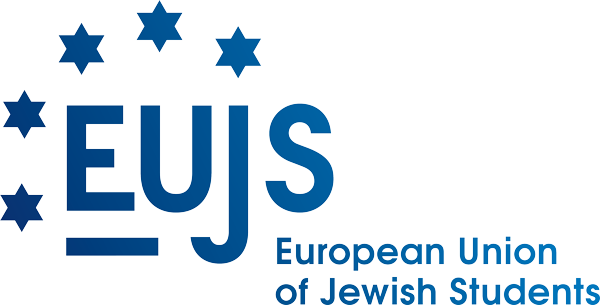To the Heads of Higher Education Establishments,
Today is International Students’ Day. The European Union of Jewish Students (EUJS) remembers the important history stemming from this day.
On the 17th of November 1939, Nazis stormed the University of Prague after demonstrations against the German occupation of Czechoslovakia and killed two students. As a response, anti-Nazi demonstrations broke out, during which 1,200 students and faculty were arrested and deported to concentration camps.
This became the day for which students stand up for freedom and democracy in all nations.
Historically, European universities have played a crucial role in fostering hate and the systematic discrimination of Jews and other marginalised groups. Still today, and especially since the barbarian attacks committed by the terrorist group Hamas on the 7th of October 2023, Jewish students do not feel safe on their campuses. Their safety has been, and is constantly jeopardised. Jewish students feel the need to stand up for their freedom and rights once again, 84 years later.
In response to this exponential wave of antisemitism across Europe, EUJS has compiled a report on “The rise of antisemitic acts and incidents in Universities across Europe since 7th of October 2023”.
Universities are tasked to foster an environment that promotes respectful discussion and learning. They have a special responsibility to ensure that all people, especially those in minority groups, feel safe and included on and off campuses.
However, hateful narratives and actions impede Jewish students from partaking in university life and academia. Therefore, we need to oppose all forms of extremism, including antisemitism, standing in solidarity with Jewish students.
To this end, the European Union of Jewish Students (EUJS), calls upon the academic community to ensure that Jewish students can thrive in a safe and welcoming educational environment and recommend some necessary steps in order to ensure safety for your Jewish students on campuses:
1. The adoption of the International Holocaust Remembrance Alliance (IHRA) working definition on Antisemitism must be adopted and its long-term compliance guaranteed.
2. Extremist and anti-democratic organisations and groups, as well as those associated with them, must be banned within the university context.
3. Students and employees of the university who violate the above-mentioned guidelines must expect clear and harsh consequences. These also need to be enforced.
4. Anti-discrimination offices must receive mandatory training on antisemitism and all of its manifestations in order to guarantee Jewish students have dedicated and knowledgeable contact points and support.
5. Sustainable and proactive strategies must be developed to combat and prevent antisemitism on campus.
6. Students of political and social science subjects as well as student teachers must complete compulsory modules on antisemitism in the course of their studies.






















